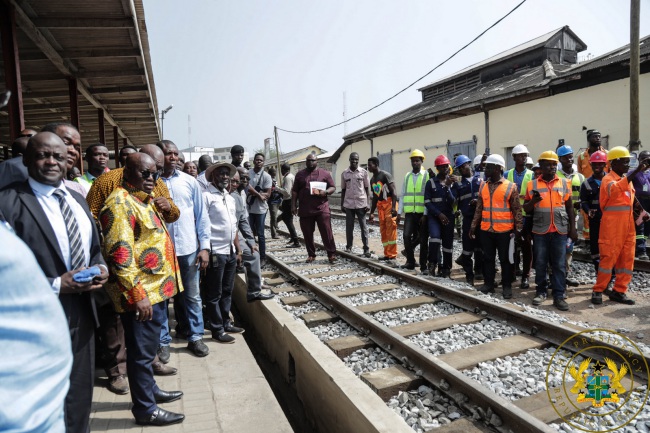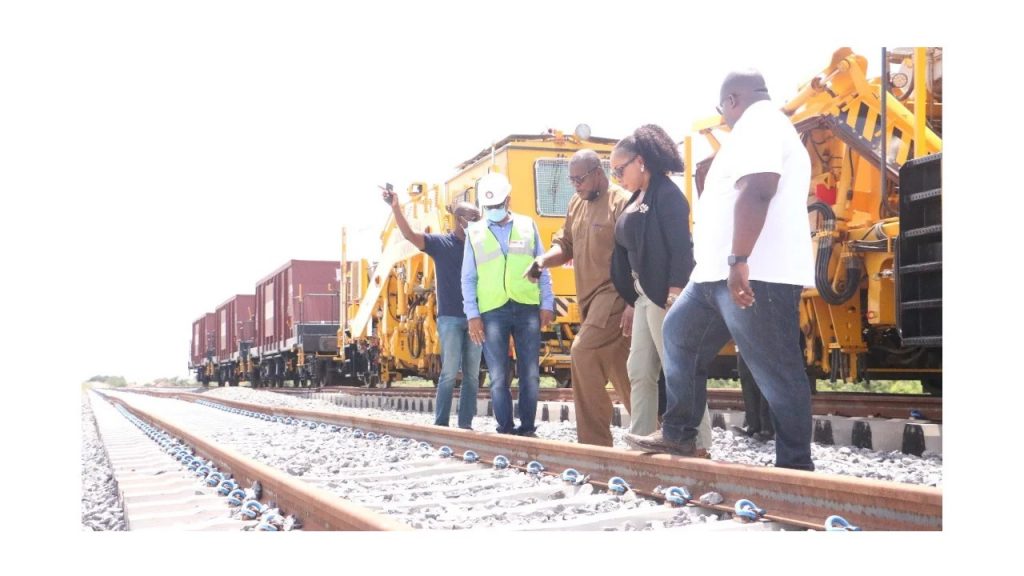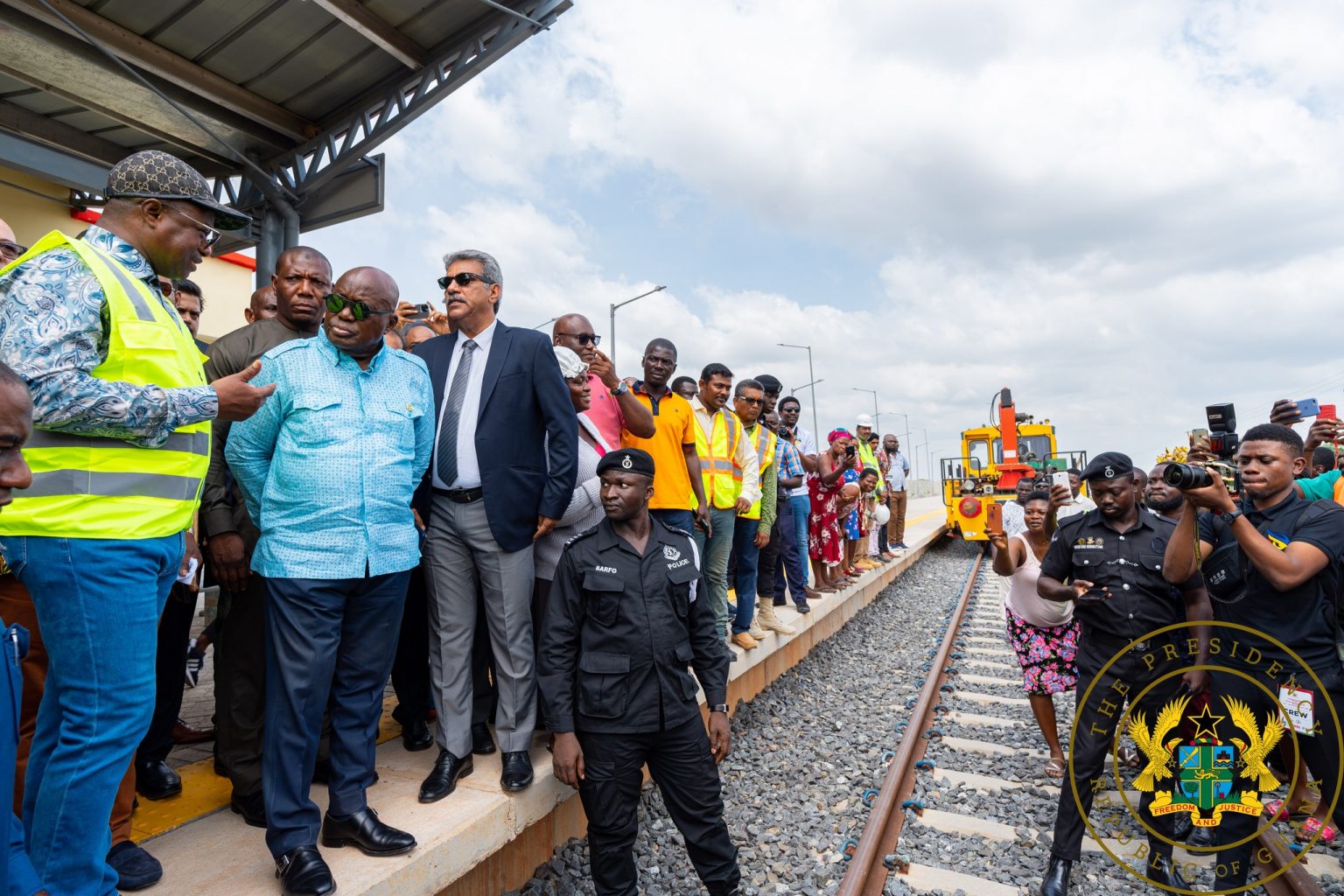The development of Ghana’s rail industry has been hailed as a success by President Nana Addo Dankwa Akufo-Addo.

He claimed that the present New Patriotic Party (NPP) administration has built more railroad lines than any other since the country’s independence.
“I would like to state for the record that more railroad building has taken place in the last five years of my government than at any time since independence. By the end of my term in 2025, the foundation we have laid will have gained even more momentum.
My dedication to the creation of a brand-new, cutting-edge, standard railroad network is steadfast.” He made this statement on Tuesday, December 6, 2022, during the groundbreaking ceremony for the Afienya Road Over Bridge, a crucial part of the 97.7-kilometer Tema to Mpakadan Railway Project.
The project, according to President Akufo-Addo, was conceived to create a multimodal transportation network, involving road, rail, and lake transportation, which will facilitate the haulage of cargo and the movement of people from the southern part of the country to the northern sector through a mix of international and domestic transportation.

The President claims that in June 2007, the former Ministry of Harbours and Railways ordered a feasibility assessment for a multimodal transportation link between Tema and Buipe that would cross the Volta Lake. The practicality of the multi-modal transport corridor in terms of operations, finances, and economy was highlighted in the study, which was successfully finished in 2009.
The Credit Facility and the Commercial Agreement between the Ministry of Finance and the EXIM Bank of India, with AFCONS Infrastructure Ltd., also of India, serving as the contractor for the project, were subsequently approved by resolution at the 6th Parliament’s 14th Sitting of its Third Meeting on Monday, October 31, 2016, he continued.
The President noted that since the majority of domestic freight and transit freight between Accra, Tema, and northern Ghana, as well as further to Burkina Faso, Mali, and Niger, is currently transported via roads via Kumasi, Tamale, Bolgatanga, Navrongo, and Paga, the over-reliance of Ghana’s road network and the absence of other transport options, particularly between Accra and Kumasi, have led to congestion, rapid deterioration of roads, and road accidents.













